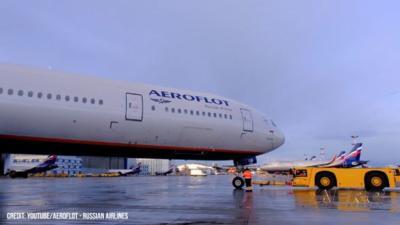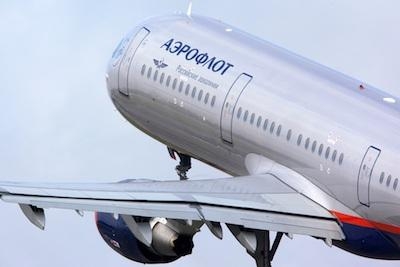Thu, Aug 11, 2022
Silence of the MELs
Belligerence against Ukraine has landed Russia in hot water with the international community—which swiftly levied sweeping sanctions against the superpower. In accordance with edicts handed down by their respective governments, American Boeing and European Airbus have halted sales of their aircraft, aircraft parts, and technical expertise to Russian air carriers. Desperate to keep their aircraft flying, Russian airlines have resorted to the age-old recourse of the desperate—cannibalism.

Cannibalism of aircraft usually occurs when the need for parts outpaces supply chains, and no alternative parts are available. As the airworthiness of commercial aircraft is predicated upon constant maintenance and component replacement, Russian airlines have had no choice but to remove aircraft from service and relegate them to the sad station of parts donors.
A leaked, unofficial report from within the Kremlin posits a dismal future for Russia’s aviation sector as the nation’s carrier’s attempt to replace Western airliners with Russian-made commercial aircraft. The cost of replacing Russia’s extant commercial fleet with one-thousand domestically produced airplanes by 2030 is estimated to cost 627-billion rubles—about $9.7-billion. Such a price tag is apt to prove too heavy a burden on Russian taxpayers—many of whom oppose their nation’s invasion of Ukraine.
In addition to cannibalism, Russian air carriers are endeavoring to source aircraft parts through Turkey, India, and China—countries alternately tacitly averse to the West or sympathetic to the Kremlin’s aims. China—likely fearing incurring Western sanctions of its own—has thus far reportedly turned down Russian airlines' requests for parts and technical support.

Owing to the increasingly dubious states of repair into which their fleets are falling, Russian airlines are currently prohibited from operating in the airspaces of most nations outside the Russian Federation. Critics of the West’s response to the Ukrainian conflict argue sanctions on Russia’s commercial aircraft industry are apt to harm primarily civilians forced to book travel aboard woefully underserviced aircraft.
Certainly, American and European resolve will be sternly tested when Aeroflot jets begin falling from Russian skies—as they inevitably will.
More News
He Attempted To Restart The Engine Three Times. On The Third Restart Attempt, He Noticed That Flames Were Coming Out From The Right Wing Near The Fuel Cap Analysis: The pilot repor>[...]
Make Sure You NEVER Miss A New Story From Aero-News Network Do you ever feel like you never see posts from a certain person or page on Facebook or Instagram? Here’s how you c>[...]
From 2009 (YouTube Edition): Leading Air Show Performers Give Their Best Advice for Newcomers On December 6th through December 9th, the Paris Las Vegas Hotel hosted over 1,500 air >[...]
Aero Linx: NASA ASRS ASRS captures confidential reports, analyzes the resulting aviation safety data, and disseminates vital information to the aviation community. The ASRS is an i>[...]
“For our inaugural Pylon Racing Seminar in Roswell, we were thrilled to certify 60 pilots across our six closed-course pylon race classes. Not only did this year’s PRS >[...]
 NTSB Final Report: Rutan Long-EZ
NTSB Final Report: Rutan Long-EZ ANN FAQ: Turn On Post Notifications
ANN FAQ: Turn On Post Notifications Classic Aero-TV: ICAS Perspectives - Advice for New Air Show Performers
Classic Aero-TV: ICAS Perspectives - Advice for New Air Show Performers ANN's Daily Aero-Linx (06.28.25)
ANN's Daily Aero-Linx (06.28.25) Aero-News: Quote of the Day (06.28.25)
Aero-News: Quote of the Day (06.28.25)




